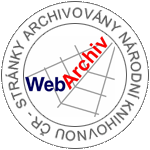"Medical education is constantly evolving by gradually, but significantly, shifting from traditional methods (eg, textbooks, lectures, bedside teaching) to a more comprehensive approach that also employs modern information and communication technology (ICT) tools (eg, e-learning, interactive algorithms, computer simulations, virtual patients). Such approaches have been demonstrated to enhance and improve the learning skills of medical students and residents in comparison to traditional methods. Several ancillary factors in medicine and medical education have also contributed significantly to these trends; in particular, the rapid development of new technologies and the generally preferred shorter hospital stays, which reduces the student’s exposure to a given case or diagnosis."
... as much as from the beginning of the article, which focuses in more detail on e-learning in medicine in general, but also on advantages of portal MEFANET. This project enabled collaboration in medical education to 10 medical schools on both sides of the czechoslovak border. Published teaching aids, materials and lectures cover a wide range of medical specialties, from biochemistry, anatomy and physiology through to the hemato-oncology, dermatology or otorhinolaryngology. Acute medicine is the field of e-learning materials challenge, since it is a dynamic environment with high demands on teamwork, communication, fast clinical decision-making and lighting solutions in sudden and often life-threating situation. AKUTNE.CZ portal is an important part of MEFANET as it provides undergraduate and postgraduate students of medical sciences a comprehensive source of information covering all aspects of emergency medicine. The cornerstones of the portal AKUTNE.CZ are interactive learning algorithms, virtual simulation tools on diagnosis and therapy in acute situations. Algorithms fulfill what is meant by the term 'serious games', the new trend in medical education, planned new extension of MEFANET activities.





